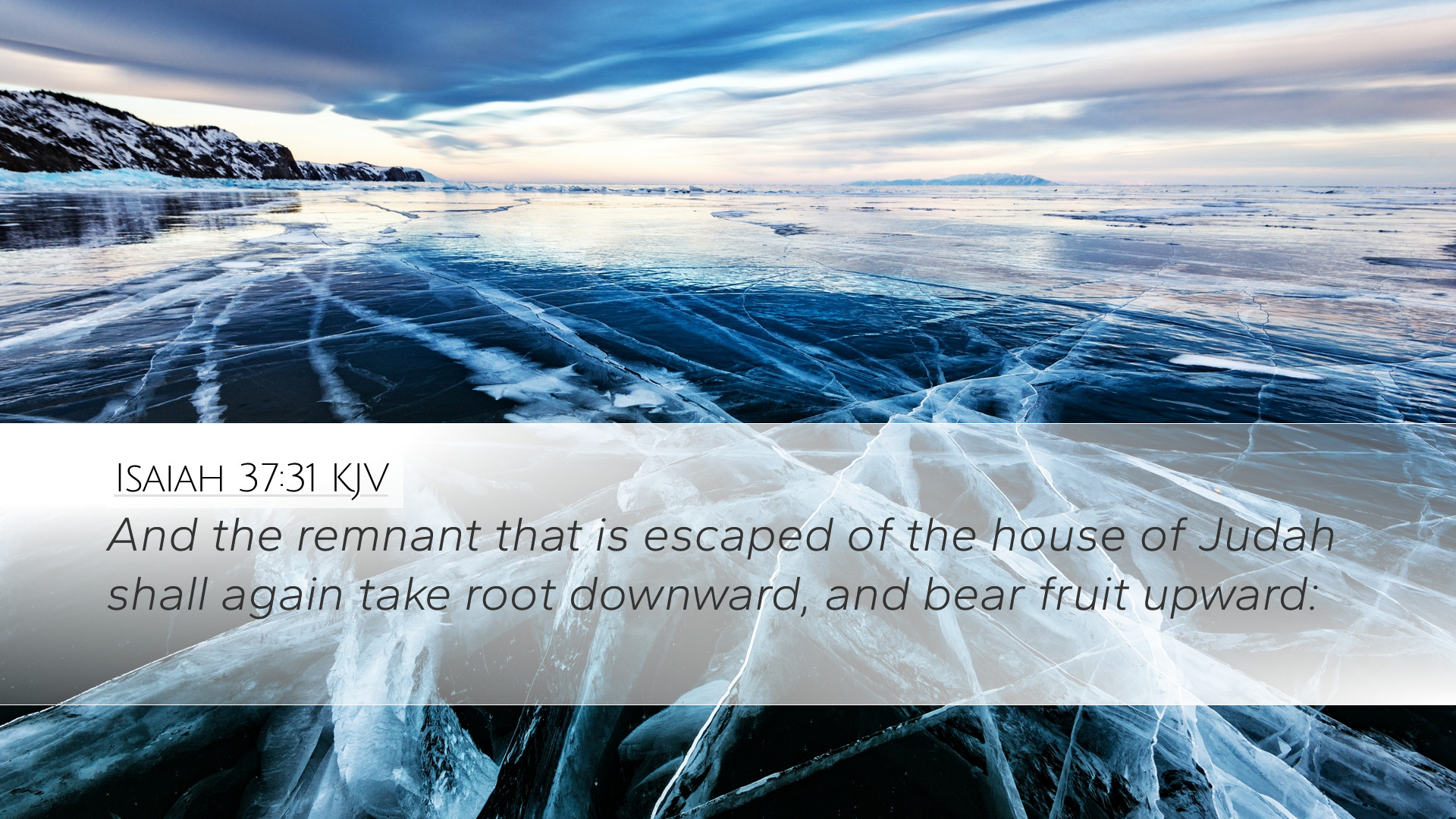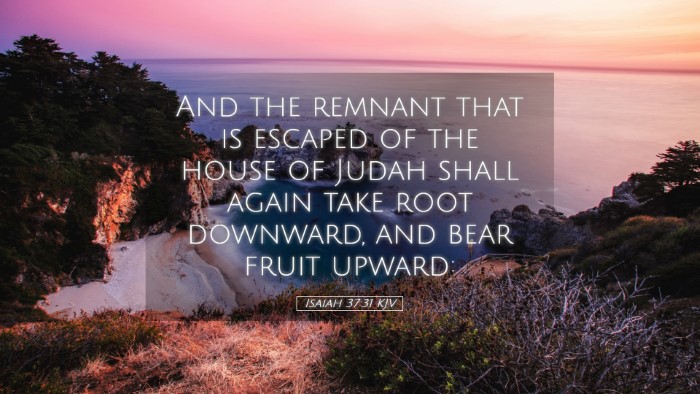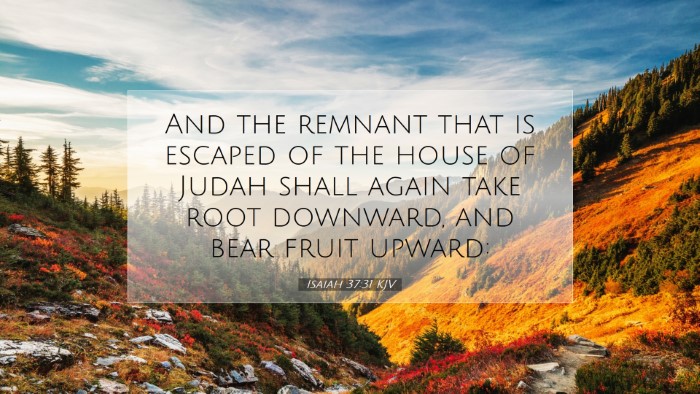Commentary on Isaiah 37:31
Verse Reference: Isaiah 37:31
"And the remnant that is escaped of the house of Judah shall again take root downward, and bear fruit upward."
Introduction
The verse from Isaiah 37:31 serves as a beacon of hope amid the backdrop of turmoil and distress facing Judah during the Assyrian siege of Jerusalem. This commentary aims to explore the profound implications of this verse and its relevance to the faithful remnant, utilizing insights from notable public domain scholars such as Matthew Henry, Albert Barnes, and Adam Clarke.
Contextual Analysis
Isaiah 37 unfolds in a critical period of Israel's history, namely during King Hezekiah's reign, when Assyria posed a significant threat. The backdrop of uncertainty sets the stage for this promise of restoration that centers around the "remnant" of Judah. The concept of a remnant is pivotal in scriptural accounts, indicating that God preserves a faithful group even in times of widespread apostasy.
Historical Background
The Assyrian conquest in the 8th century BC forced many into despair and doubt regarding the future of God's chosen people. Yet, Isaiah delivers a prophetic message of hope through God's promise of rejuvenation and fruitfulness.
Theological Insights
This verse encapsulates several key theological themes:
- Hope in Despair: Despite overwhelming odds, Isaiah assures that a remnant shall not only survive but thrive.
- Roots and Fruits: The imagery of rooting downwards and bearing fruit upwards speaks to spiritual vitality and productivity that stems from a deep connection with God.
- Divine Promise: God’s commitment to His people is affirmed, showing that even in calamity, His covenant faithfulness prevails.
Matthew Henry's Perspective
According to Matthew Henry’s commentary, this passage emphasizes the security that God's remnant will find in their root system, illustrating steadfastness and growth. Henry elaborates that taking root "downward" signifies a firm foundation in faith, which allows for the "fruit" of righteousness to manifest. He highlights that this metaphor represents believers establishing their lives in God’s word and promises as a response to trials.
Albert Barnes' Commentary
Albert Barnes focuses on the contrast drawn in this verse between destruction and rejuvenation. He notes that while the Assyrian threat may lead to great loss, God has preserved a group that will endure. Barnes emphasizes that this remnant signifies not just survival but a transformation that leads to spiritual and societal flourishing, encouraging readers to have confidence in God’s ability to restore what was lost.
Adam Clarke's Insights
Adam Clarke provides a rich theological interpretation of the phrase "take root downward." He asserts that grounding in God's truth and promises is essential for spiritual growth. Clarke also discusses the importance of bearing "fruit upward," emphasizing that true faith results in observable deeds and a testimony that honors God. He encourages believers to seek a deeper relationship with God, which ultimately leads to a flourishing life.
Applications for Today
In pastoral ministry, this verse holds profound implications for encouraging congregations and individuals facing trials. The promise of restoration serves as a reminder that God remains sovereign and faithful.
Encouragement for the Church
The contemporary church, much like Judah, may often feel besieged by cultural and spiritual challenges. Pastors can draw upon this verse to inspire hope in their congregations, urging them to deepen their roots in faith and remain steadfast.
Moving from Survival to Flourishing
This scripture invites believers to transition from merely surviving hardships to embracing the possibility of thriving through them. By rooting in God’s word, they are equipped to bear fruit that reflects the love and character of Christ.
Conclusion
Isaiah 37:31 is a rich source of encouragement for Christians today, embodying themes of hope, resilience, and growth. The insights from Henry, Barnes, and Clarke collectively illuminate the necessity of rooting deeply in God's promises to realize the fullness of spiritual life. The remnant of Judah symbolizes the persistent faithfulness of God to His people, assuring all who trust in Him that they too will one day bear the fruits of restoration and renewal.
Further Reflection
For deeper personal application, believers and scholars alike should meditate on how they can root themselves more profoundly in their faith and examine the fruits they are producing in their lives. Engaging with this text in a communal context, such as study groups or sermons, also invites additional perspectives on the transformative power of God's promises.


